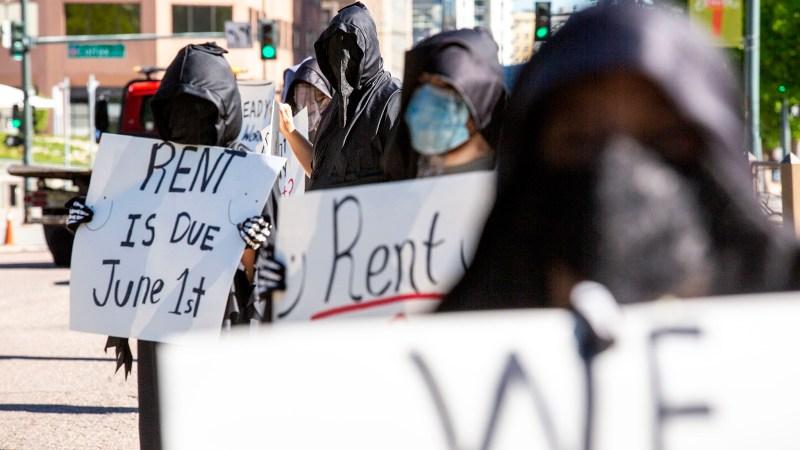
Court proceedings for evictions could resume within days in Colorado after a proposed moratorium collapsed in the statehouse.
Evictions have been frozen in Colorado for months under orders from Gov. Jared Polis, but the ban expires Saturday. State lawmakers had hoped to extend the moratorium, but a final, last-ditch effort faltered on Thursday.
“I know that time is running out, but I’m still hopeful and we’re still pushing for that to happen,” said Dre Chiriboga-Flor, state co-director of 9to5 Colorado, early in the evening.
It was not to happen. With state lawmakers declining to restrict evictions, advocates are looking now to Polis, to see whether he will extend his own ban on removals. A spokesperson wasn't immediately available for comment. Earlier this month, Polis said that he expected some evictions to resume in June.
If the order expires this weekend, property owners could soon begin to file paperwork to evict tenants. That will also depend on the policies set by chief justices within each judicial district. The process of removing someone from a home can take weeks after filing, but many tenants may move out more quickly to avoid the many difficulties that come with an eviction.
Denver Sen. Julie Gonzales led the effort to extend the moratorium. In an hour-long speech on Thursday night, she sounded somber and disappointed.
"I couldn't get the votes. Because the landlord lobby in this building is strong," she said. "We abandoned the bill. We started working through a compromise. And then realized that the amendment we were being asked to carry wasn't a compromise at all."
Gonzales and others had hoped to keep the moratorium in place into October. It would only apply to people affected by COVID-19, she said. Housing management groups pushed back, saying it was too broadly worded.
"A bipartisan majority of Senators understand that COVID relief has to be narrowly tailored to those in need and limited to a reasonable period in order to be sustainable," wrote Drew Hamrick, general counsel for the Apartment Association of Metro Denver, in a text message late Thursday, adding that landlords are working with tenants to avoid evictions.
Gonzales said that the protections were meant for people directly affected by the crisis.
“When I say 'hardship directly related to the pandemic,' I mean they lost their job. I mean maybe they were in the ICU,” she said, adding that countless people were still waiting for unemployment benefits and struggling without work.
People have generally kept paying their rent despite the current eviction moratorium and financial crisis, with only a slight rise in delinquency, according to data from a Colorado Apartment Association survey of larger apartment buildings.
But Hamrick said that even small increases in nonpayment could disproportionately hurt smaller landlords.
“If you have a bungalow in Washington Park and a duplex in Capitol Hill and one of your tenants doesn’t pay, that is unsustainable,” he said.
Conversely, housing advocates have warned that evictions will surge as unemployment benefits ramp down and the recession potentially drags on. Gonzales said that evictions will leave people homeless during a pandemic.
“Where do you go if you don’t have a home?” she asked.
Eviction filings have dropped sharply in Colorado during the moratorium. There have been just 37 filed statewide this month, compared to 3,000 in a typical month, according to data pulled by Hamrick.
As of Thursday, 24 states had begun processing evictions again, according to USA Today. Still, federal law bans evictions at certain properties with federally backed mortgages until late July.








